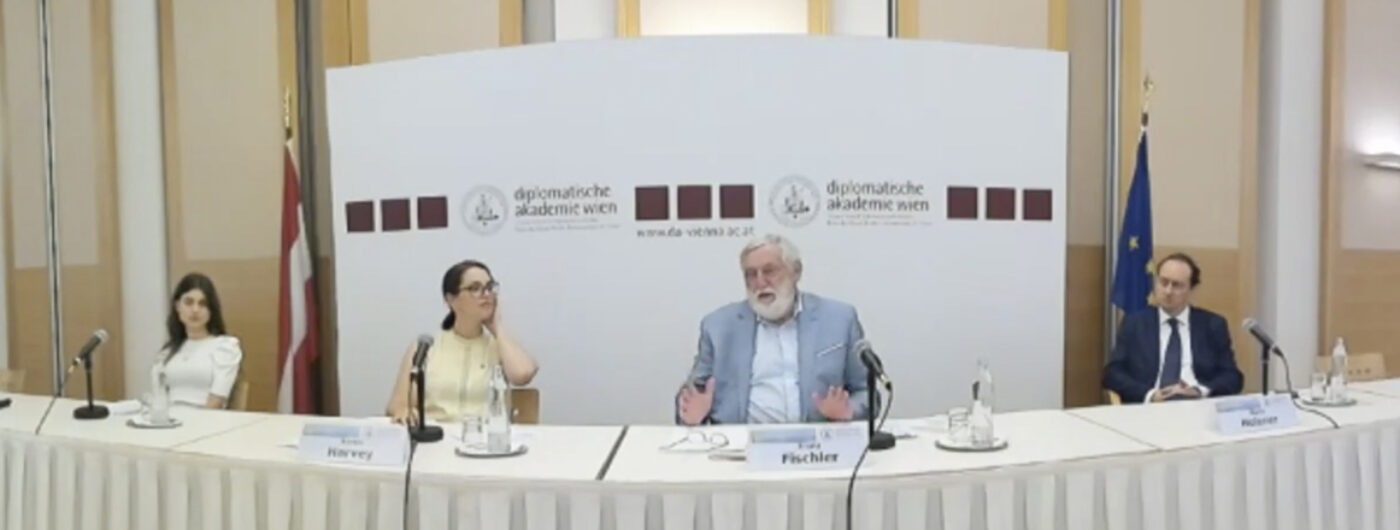
What will the post-pandemic world look like in the Mediterranean region?
The Diplomatic Academy in Vienna gave the Union for the Mediterranean (UfM) the opportunity to share its vision of how the region must look in the future as the UfM Secretary General, Nasser Kamel, participated in discussions that explored what a post-pandemic world might look like.
Vienna, 1 July 2020. The conference ‘From Victory Day to Corona Disarray: 75 years of Europe’s Collective Security and Human Rights System’ was co-organised by the International Institute for Middle East and Balkan Studies (IFIMES) and the EU media platform Modern Diplomacy to underline how the post-COVID 19 world is a near yet unchartered future and to help shape this future in a way that respects and further strengthens our universal human rights and liberties.
The event was chaired by the IFIMES Board Chair, Ernest Petric (former President of the Slovenia’s Constitutional Court) and the keynote speakers included Heinz Fischer, President of the Republic of Austria, the Ban Ki-moon Centre, and Ghada Fathi Waly, Director-General, United Nations Office Vienna.
The UfM Secretary General, Nasser Kamel, took part in the panel entitled, ‘Future to Europe: Is there any alternative to universal and pan-European multilateralism? Revisiting and recalibrating the Euro-MED and cross-continental affairs’. He highlighted: “The outbreak of the pandemic is certainly one of the greatest crises we have faced in over a century and serves as a stark and uncompromising reminder of the need for tangible cooperation, and that this reality – valid on a global scale – is nonetheless a more urgent one for the Mediterranean region, where conditions of fragility and exposure are further concentrated.” Not only this, but he also added, “the threat multiplier represented by climate change is especially intense throughout the Mediterranean Basin. Resilience must therefore be at the heart of each and every action we undertake from now on.”
To achieve this, the Euro-Mediterranean region needs a development strategy based on circular economies which drive sustainable growth that’s fairly distributed while encouraging competition. As we recover, we must take the opportunity to create new inclusive societies that ensure young people and women can fulfil their potential as agents of change and contributors to the region’s economy.
These outcomes can be achieved through greater cooperation and connectivity, with integrated actions that tackle the root causes of crises. This is the vision that the Union for the Mediterranean will continue putting forward, to take on the social, environmental and economic challenges that we all share in this region, at the meeting point of three continents.

